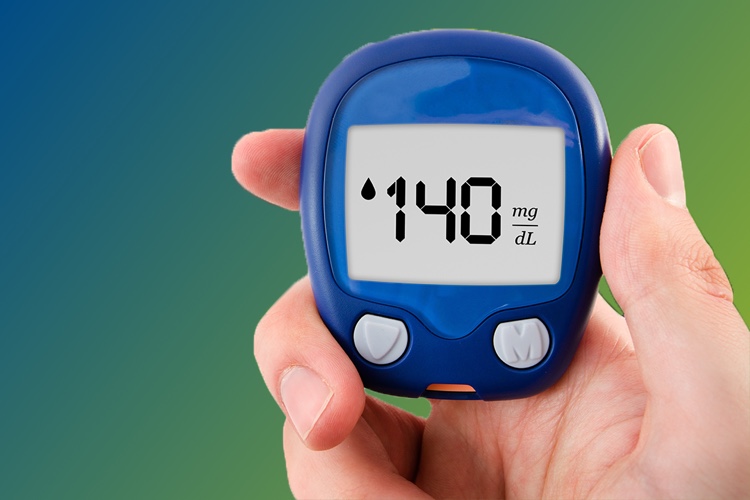Chronic Disease Resources
Preventable chronic diseases like diabetes and heart disease continue to be leading causes of death. The Southern Nevada Health District (SNHD) provides free programs and resources including the Walk Around Nevada and the Nutrition Challenge, online programs and mobile apps to help individuals engage in healthier lifestyles and reduce their risk for developing chronic diseases. SNHD also offers free diabetes self-management education classes. Classes are recognized by the American Diabetes Association and are intended for people who have prediabetes or diabetes. Healthcare providers can refer patients to self-management classes here.
You can use our referral forms in English or Spanish to refer your patients to these resources.
- Download the referral form to “prescribe” healthy lifestyle resources to your patients.
- Watch our video that includes health care provider toolkits, diabetes prevention and other healthy lifestyle programs and resources available to your patients.
Heart & Stroke Toolkits and Resources
Heart disease and stroke continue to be among the top causes of death in Nevada. Heart disease is the leading cause of death, while stroke is the fifth leading cause. Below are resources addressing heart disease, stroke, and high-blood pressure for providers.
- High Blood Pressure Resource Toolkit– This provider resource includes detailed information pertaining to clinical guidelines and recommendations for monitoring blood pressure, self-monitoring interventions, and information fact sheets for dissemination to patients.
- Stroke Resource Toolkit– This resource offers detailed information for providers including the NIH acute stroke assessment, treatment resources, and informational sheets to complement conversations with patients and families.
- Self-Monitoring Blood Pressure Guide– This resource can help your patients monitor their blood pressure and share readings with you, their provider.
- Self-Monitoring Blood Pressure Fact Sheet– Learn more about the benefits of adopting a Self-Monitoring Blood Pressure program in your practice.
- Know Your Numbers Brochure– These brochures can be downloaded and shared with patients. They provide information about blood pressure, blood pressure ranges and help patients track their blood pressure readings. They are available in English and Spanish.
Diabetes Toolkits and Resources
- Diabetes Self-Management Education Toolkit– This toolkit helps clinicians achieve better outcomes through the referral of patients with diabetes to an Evidence-Based Diabetes Self-Management Education Program (DSME) and includes Nevada resources.
- Prevent Diabetes Toolkit– This provider resource guides clinicians to refer patients with prediabetes to an evidence-based diabetes prevention program and includes Nevada resources.
- The Road To Diabetes Prevention– This FREE online diabetes prevention program can help patients learn how they can prevent type 2 diabetes or reduce their risk of developing the disease. The online diabetes prevention program is currently being updated. Please check back again soon. For any questions, email gethealthy@snhd.org
- Diabetes Resources
- Lending Library– The Southern Nevada Health District is offering a diabetes class facilitator kit that can be checked out to Certified Diabetes Care and Education Specialists and/or facilitators trained to use Diabetes Conversation Maps and Healthy Kids Education Tools. The Diabetes Conversation Maps and Healthy Kids kits include facilitator guides, maps, and handouts. To check out the kit(s), complete the request form at least two weeks prior to the pick-up date.
Tobacco Prevention Resources
The use of tobacco products is a major chronic disease risk factor. As a health care provider, you have an opportunity to make a significant contribution to reducing tobacco use among Southern Nevada residents. Below are some resources you may find helpful.
- Brief tobacco Use Interventions- The Brief Intervention “5 A” approach for clinicians was developed by the Agency for Healthcare Research and Quality (AHRQ) to address tobacco use with clients regularly and efficiently. The intervention is repeated at every visit with a client and can easily be integrated into the current interaction between provider and client. The condensed approach, utilized here as a “3 A” approach, includes the following steps: Ask, Advise, and Assist. The entire intervention should take less than 3 minutes.
- Nevada Tobacco Quitline – This resource can be shared with patients and is a FREE phone based service available to Nevada residents 13 years or older. It provides one-on-one coaching and nicotine replacement therapy (patches, gum, or lozenges) for qualified individuals.
Obesity Prevention Resources
More than two-thirds of U.S. adults and almost one-third of children and adolescents have overweight or obesity. Obesity is a chronic and complex disease with multiple factors including physical and social determinants of health. Healthcare providers play a critical role in supporting healthy growth as well as prevention and treatment of obesity. The following resources may be helpful for healthcare providers.
- 5-2-1-0 Healthy Habits Everyday Initiative –The 5-2-1-0 initiative promotes simple guidelines that can help children and families develop healthy habits. We work with partners to promote the 5-2-1-0 guidelines, reduce obesity stigma, and help children and families build healthy habits.
- American Academy of Pediatrics CPG for Children & Adolescents with Obesity – This clinical practice guideline (CPG) aims to inform pediatricians and other pediatric health care providers (PHCPs) about the standard of care for evaluating and treating children with overweight and obesity and related comorbidities. The CPG promotes an approach that considers the child’s health status, family system, community context, and resources for treatment to create the best evidence-based treatment plan.
- Harvard T.H. CHAN School of Public Health: Healthcare Obesity Prevention Recommendations: Complete List – This section of The Obesity Prevention Source summarizes obesity prevention recommendations for the healthcare setting, based on a review of expert guidance from the American Academy of Pediatrics, the American Medical Association, the Institute of Medicine, the National Institute for Health and Clinical Excellence, and others.
- Screen and Intervene: A Toolkit for Pediatricians to Address Food Insecurity – This toolkit developed by the American Academy of Pediatrics (AAP) and the Food Research & Action Center (FRAC) helps pediatricians screen for food insecurity.
